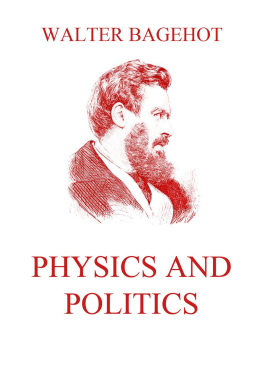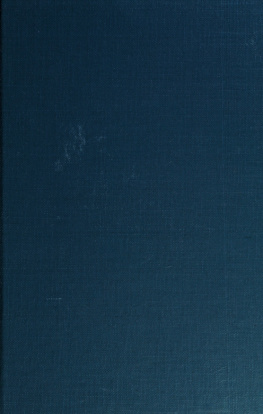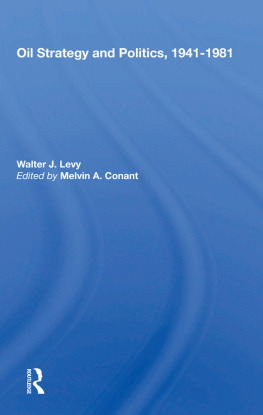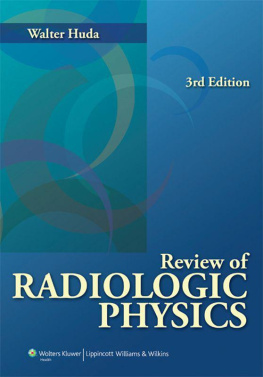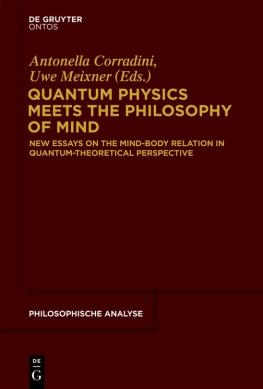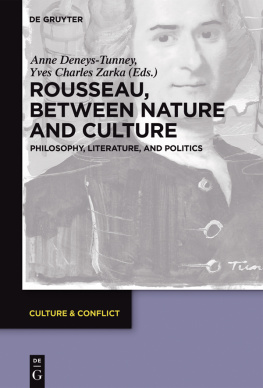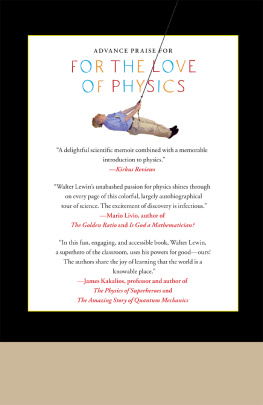CONTENTS.
NO. I.
THE PRELIMINARY AGE.
One peculiarity of this age is the sudden acquisition of much physical knowledge. There is scarcely a department of science or art which is the same, or at all the same, as it was fifty years ago. A new world of inventionsof railways and of telegraphshas grown up around us which we cannot help seeing; a new world of ideas is in the air and affects us, though we do not see it. A full estimate of these effects would require a great book, and I am sure I could not write it; but I think I may usefully, in a few papers, show how, upon one or two great points, the new ideas are modifying two old sciencespolitics and political economy. Even upon these points my ideas must be incomplete, for the subject is novel; but, at any rate, I may suggest some conclusions, and so show what is requisite even if I do not supply it.
If we wanted to describe one of the most marked results, perhaps the most marked result, of late thought, we should say that by it everything is made 'an antiquity.' When, in former times; our ancestors thought of an antiquarian, they described him as occupied with coins, and medals, and Druids' stones; these were then the characteristic records of the decipherable past, and it was with these that decipherers busied themselves. But now there are other relics; indeed, all matter is become such. Science tries to find in each bit of earth the record of the causes which made it precisely what it is; those forces have left their trace, she knows, as much as the tact and hand of the artist left their mark on a classical gem. It would be tedious (and it is not in my way) to reckon up the ingenious questionings by which geology has made part of the earth, at least, tell part of its tale; and the answers would have been meaningless if physiology and conchology and a hundred similar sciences had not brought their aid. Such subsidiary sciences are to the decipherer of the present day what old languages were to the antiquary of other days; they construe for him the words which he discovers, they give a richness and a truth-like complexity to the picture which he paints, even in cases where the particular detail they tell is not much. But what here concerns me is that man himself has, to the eye of science, become 'an antiquity.' She tries to read, is beginning to read, knows she ought to read, in the frame of each man the result of a whole history of all his life, of what he is and what makes him so,of all his fore-fathers, of what they were and of what made them so. Each nerve has a sort of memory of its past life, is trained or not trained, dulled or quickened, as the case may be; each feature is shaped and characterised, or left loose and meaningless, as may happen; each hand is marked with its trade and life, subdued to what it works in;IF WE COULD BUT SEE IT.
It may be answered that in this there is nothing new; that we always knew how much a man's past modified a man's future; that we all knew how much, a man is apt to be like his ancestors; that the existence of national character is the greatest commonplace in the world; that when a philosopher cannot account for anything in any other manner, he boldly ascribes it to an occult quality in some race. But what physical science does is, not to discover the hereditary element, but to render it distinct,to give us an accurate conception of what we may expect, and a good account of the evidence by which we are led to expect it. Let us see what that science teaches on the subject; and, as far as may be, I will give it in the words of those who have made it a professional study, both that I may be more sure to state it rightly and vividly, and becauseas I am about to apply these principles to subjects which are my own pursuitI would rather have it quite clear that I have not made my premises to suit my own conclusions.
1st, then, as respects the individual, we learn as follows: 'Even while the cerebral hemispheres are entire, and in full possession of their powers, the brain gives rise to actions which are as completely reflex as those of the spinal cord.
'When the eyelids wink at a flash of light, or a threatened blow, a reflex action takes place, in which the afferent nerves are the optic, the efferent, the facial. When a bad smell causes a grimace, there is a reflex action through the same motor nerve, while the olfactory nerves constitute the afferent channels. In these cases, therefore, reflex action must be effected through the brain, all the nerves involved being cerebral. 'When the whole body starts at a loud noise, the afferent auditory nerve gives rise to an impulse which passes to the medulla oblongata, and thence affects the great majority of the motor nerves of the body. 'It may be said that these are mere mechanical actions, and have nothing to do with the acts which we associate with intelligence. But let us consider what takes place in such an act as reading aloud. In this case, the whole attention of the mind is, or ought to be, bent upon the subject-matter of the book; while a multitude of most delicate muscular actions are going on, of which the reader is not in the slightest degree aware. Thus the book is held in the hand, at the right distance from the eyes; the eyes are moved, from side to side, over the lines, and up and down the pages. Further, the most delicately adjusted and rapid movements of the muscles of the lips, tongue, and throat, of laryngeal and respiratory muscles, are involved in the production of speech. Perhaps the reader is standing up and accompanying the lecture with appropriate gestures. And yet every one of these muscular acts may be performed with utter unconsciousness, on his part, of anything but the sense of the words in the book. In other words, they are reflex acts.
'The reflex actions proper to the spinal cord itself are NATURAL, and are involved in the structure of the cord and the properties of its constituents. By the help of the brain we may acquire an affinity of ARTIFICIAL reflex actions. That is to say, an action may require all our attention and all our volition for its first, or second, or third performance, but by frequent repetition it becomes, in a manner, part our organisation, and is performed without volition, or even consciousness.
'As everyone knows, it takes a soldier a very long time to learn his drillto put himself, for instance, into the attitude of 'attention' at the instant the word of command is heard. But, after a time, the sound of the word gives rise to the act, whether the soldier be thinking of it or not. There is a story, which is credible enough, though it may not be true, of a practical joker, who, seeing a discharged veteran carrying home his dinner, suddenly called out 'Attention!' whereupon the man instantly brought his hands down, and lost his mutton and potatoes in the gutter. The drill had been gone through, and its effects had become embodied in the man's nervous structure.
'The possibility of all education (of which military drill is only one particular form) is based upon, the existence of this power which the nervous system possesses, of organising conscious actions into more or less unconscious, or reflex, operations. It may be laid down as a rule, that if any two mental states be called up together, or in succession, with due frequency and vividness, the subsequent production of the one of them will suffice to call up the other, and that whether we desire it or not.'[1]

